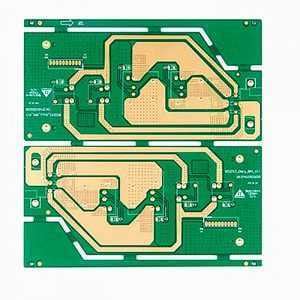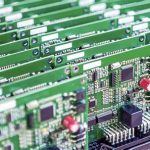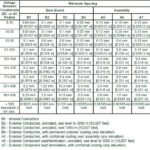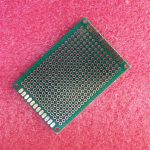The Importance of PCBs in the Automotive Industry
PCBs are the backbone of modern automotive electronics. They are used in a wide range of applications, including:
- Engine control units (ECUs)
- Transmission control modules (TCMs)
- Body control modules (BCMs)
- Infotainment systems
- Instrument clusters
- Advanced driver assistance systems (ADAS)
- Electric vehicle (EV) charging systems
These electronic components are critical for ensuring the safety, reliability, and performance of vehicles. As the automotive industry continues to evolve and embrace new technologies, the demand for high-quality PCBs is only expected to grow.
The Role of PCB Assembly Companies
PCB assembly companies play a crucial role in the automotive industry by providing the expertise and capabilities needed to design, manufacture, and assemble PCBs for various automotive applications. These companies work closely with automotive manufacturers and suppliers to develop custom PCB solutions that meet the specific requirements of each application.
PCB assembly companies offer a range of services, including:
- PCB design and layout
- Prototyping and testing
- Component sourcing and procurement
- PCB fabrication
- PCB assembly (surface mount and through-hole)
- Quality control and inspection
- Supply chain management
By outsourcing PCB assembly to specialized companies, automotive manufacturers can focus on their core competencies while ensuring that their electronic components are produced to the highest standards of quality and reliability.
Challenges Faced by PCB Assembly Companies in the Automotive Industry
PCB assembly companies serving the automotive industry face several unique challenges, including:
1. Stringent Quality and Reliability Requirements
Automotive PCBs must meet strict quality and reliability standards to ensure the safety and performance of vehicles. PCBs used in automotive applications must be able to withstand extreme temperatures, vibrations, and other harsh environmental conditions. PCB assembly companies must adhere to industry standards such as IATF 16949 and AEC-Q100 to ensure that their products meet these requirements.
2. Long Product Life Cycles
Automotive PCBs typically have longer product life cycles compared to PCBs used in other industries, such as consumer electronics. This means that PCB assembly companies must be able to support the production and maintenance of PCBs for several years or even decades. This requires robust supply chain management and the ability to source components that will be available for the duration of the product life cycle.
3. Rapid Technological Advancements
The automotive industry is undergoing rapid technological advancements, with the adoption of electric vehicles, autonomous driving, and connected car technologies. PCB assembly companies must keep pace with these advancements and develop new PCB solutions that can support these emerging technologies. This requires significant investments in research and development, as well as partnerships with technology providers and automotive manufacturers.
4. Cost Pressures
The automotive industry is highly competitive, and manufacturers are constantly looking for ways to reduce costs while maintaining quality and performance. PCB assembly companies must be able to offer cost-effective solutions without compromising on quality or reliability. This requires efficient manufacturing processes, supply chain optimization, and continuous improvement initiatives.
Key Players in the Automotive PCB Assembly Market
Several PCB assembly companies specialize in serving the automotive industry. Some of the key players in the market include:
1. Jabil Circuit
Jabil Circuit is a global manufacturing services company that provides PCB assembly services for the automotive industry. The company has a dedicated automotive division that offers end-to-end solutions for automotive electronics, including PCB design, fabrication, and assembly. Jabil Circuit has a global footprint with manufacturing facilities in North America, Europe, and Asia.
2. Sanmina Corporation
Sanmina Corporation is a leading provider of integrated manufacturing solutions, including PCB assembly services for the automotive industry. The company has a strong presence in the automotive market, with a focus on safety-critical applications such as ADAS and autonomous driving. Sanmina Corporation has manufacturing facilities in key automotive markets around the world, including the United States, Mexico, China, and Hungary.
3. Flex Ltd.
Flex Ltd. (formerly Flextronics) is a global provider of design, engineering, manufacturing, and supply chain services, including PCB assembly for the automotive industry. The company has a dedicated automotive division that offers a range of solutions for automotive electronics, including infotainment systems, instrument clusters, and ADAS. Flex Ltd. has a global footprint with manufacturing facilities in North America, Europe, and Asia.
4. Kimball Electronics
Kimball Electronics is a global contract manufacturing company that provides PCB assembly services for the automotive industry. The company has a strong focus on quality and reliability, with certifications such as IATF 16949 and ISO 9001. Kimball Electronics has manufacturing facilities in the United States, Mexico, China, Poland, and Thailand.
5. Celestica Inc.
Celestica Inc. is a global provider of design, manufacturing, and supply chain solutions, including PCB assembly services for the automotive industry. The company has a dedicated automotive division that offers a range of solutions for automotive electronics, including infotainment systems, telematics, and EV charging systems. Celestica Inc. has manufacturing facilities in North America, Europe, and Asia.

The Future of PCB Assembly in the Automotive Industry
The automotive industry is undergoing significant changes, driven by the adoption of new technologies such as electric vehicles, autonomous driving, and connected car features. These changes are expected to have a profound impact on the PCB assembly market, creating new opportunities and challenges for PCB assembly companies.
One of the key trends in the automotive PCB assembly market is the increasing demand for high-density interconnect (HDI) PCBs. HDI PCBs offer several advantages over traditional PCBs, including smaller size, higher functionality, and improved signal integrity. As automotive electronics become more complex and miniaturized, the demand for HDI PCBs is expected to grow significantly.
Another trend in the automotive PCB assembly market is the increasing use of flexible and rigid-flex PCBs. These PCBs offer greater design flexibility and improved reliability compared to traditional rigid PCBs. Flexible and rigid-flex PCBs are particularly well-suited for applications that require high levels of vibration and shock resistance, such as ADAS and autonomous driving systems.
The adoption of electric vehicles is also expected to have a significant impact on the automotive PCB assembly market. Electric vehicles require specialized PCBs for battery management systems, power electronics, and charging systems. PCB assembly companies that can offer solutions for these applications are well-positioned to capitalize on the growth of the electric vehicle market.
Finally, the increasing use of advanced manufacturing technologies such as 3D printing and robotics is expected to transform the PCB assembly market in the coming years. These technologies offer the potential for faster, more flexible, and more cost-effective manufacturing processes, which could help PCB assembly companies to better serve the needs of the automotive industry.
Frequently Asked Questions (FAQ)
1. What are the key quality and reliability standards for automotive PCBs?
The key quality and reliability standards for automotive PCBs include IATF 16949, which is the global standard for quality management in the automotive industry, and AEC-Q100, which is a specification for the qualification of automotive-grade electronic components.
2. What are the advantages of using HDI PCBs in automotive applications?
HDI PCBs offer several advantages over traditional PCBs, including smaller size, higher functionality, and improved signal integrity. These advantages make HDI PCBs well-suited for automotive applications that require high levels of performance and reliability in a compact form factor.
3. How are PCB assembly companies supporting the growth of the electric vehicle market?
PCB assembly companies are supporting the growth of the electric vehicle market by offering specialized solutions for battery management systems, power electronics, and charging systems. These solutions are designed to meet the unique requirements of electric vehicles, such as high voltage and current handling, thermal management, and safety.
4. What are the benefits of using flexible and rigid-flex PCBs in automotive applications?
Flexible and rigid-flex PCBs offer several benefits over traditional rigid PCBs, including greater design flexibility, improved reliability, and better vibration and shock resistance. These benefits make flexible and rigid-flex PCBs well-suited for automotive applications that require high levels of durability and performance in challenging environmental conditions.
5. How are advanced manufacturing technologies transforming the automotive PCB assembly market?
Advanced manufacturing technologies such as 3D printing and robotics are transforming the automotive PCB assembly market by enabling faster, more flexible, and more cost-effective manufacturing processes. These technologies can help PCB assembly companies to better serve the needs of the automotive industry by reducing lead times, improving quality, and lowering costs.
Conclusion
PCB assembly companies play a critical role in the automotive industry, providing the expertise and capabilities needed to design, manufacture, and assemble PCBs for a wide range of automotive applications. As the automotive industry continues to evolve and embrace new technologies, the demand for high-quality, reliable PCBs is only expected to grow.
PCB assembly companies serving the automotive industry face several unique challenges, including stringent quality and reliability requirements, long product life cycles, rapid technological advancements, and cost pressures. To meet these challenges, PCB assembly companies must invest in research and development, partnerships with technology providers and automotive manufacturers, and continuous improvement initiatives.
The future of PCB assembly in the automotive industry is bright, with several key trends shaping the market, including the increasing demand for HDI PCBs, the growing use of flexible and rigid-flex PCBs, the adoption of electric vehicles, and the use of advanced manufacturing technologies. PCB assembly companies that can capitalize on these trends and offer innovative solutions for automotive electronics are well-positioned for success in the years ahead.






Leave a Reply